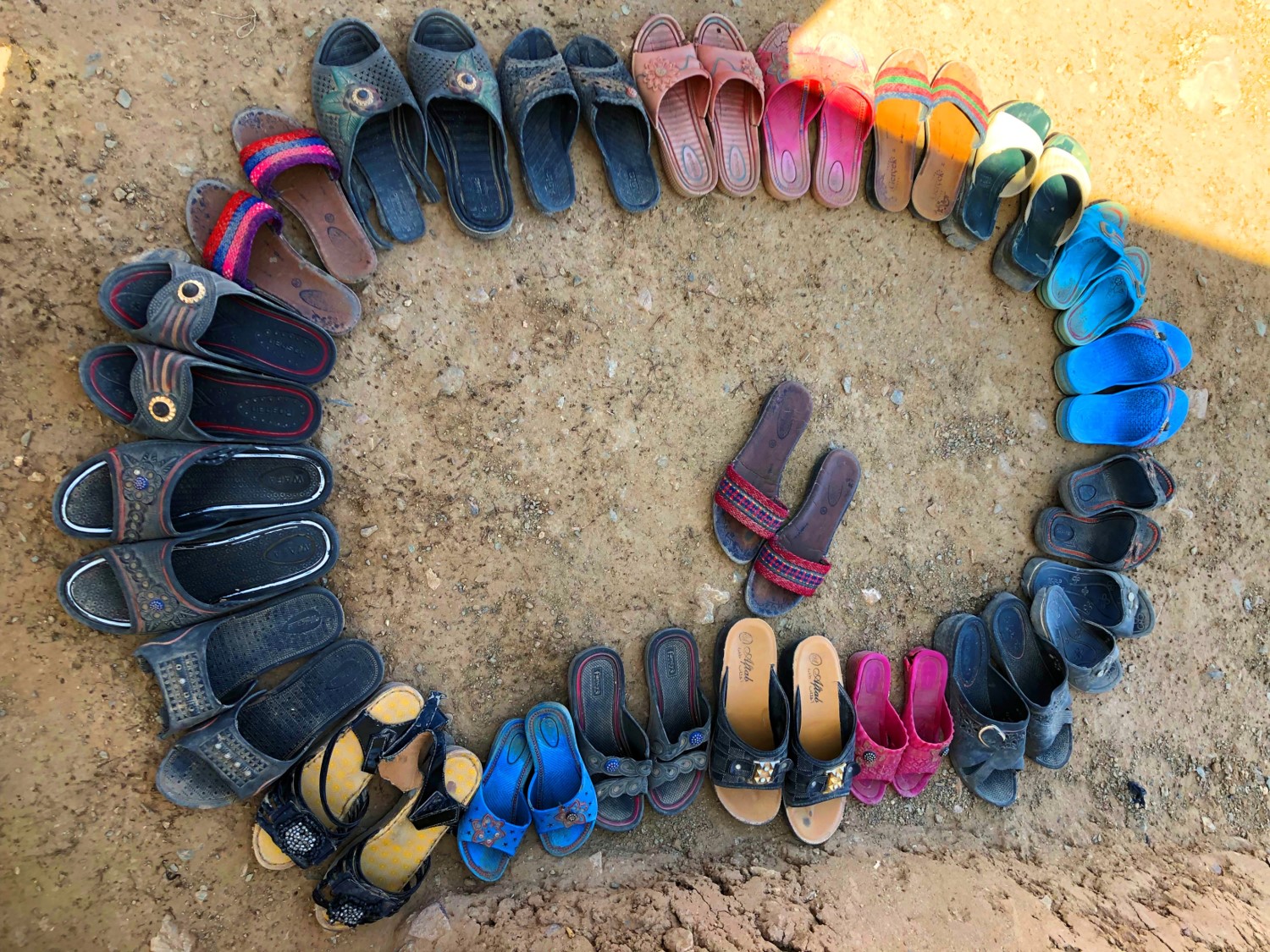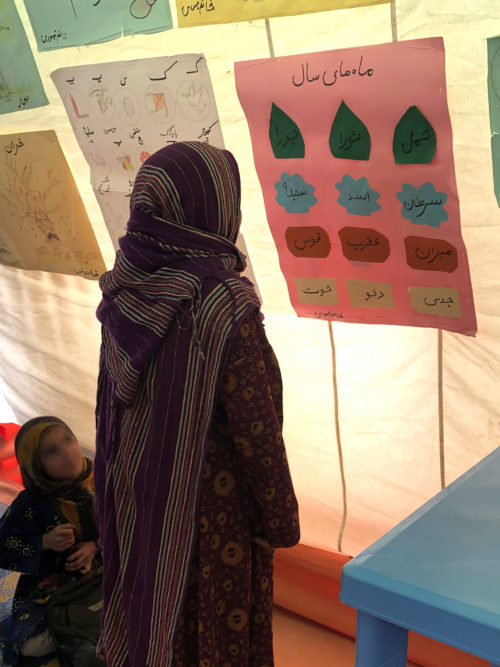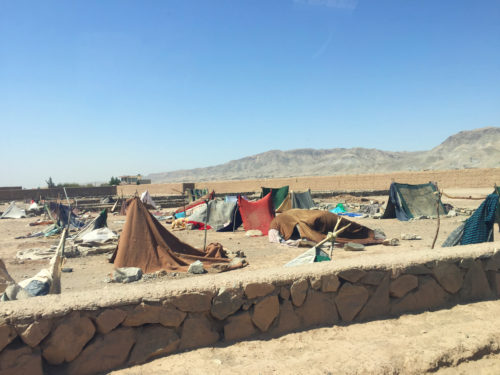
Take the Blinders Off
Responding to the Real Needs of the Afghan People
The following is an executive overview of InterAction’s newest report, which was written following an InterAction humanitarian team field mission to Afghanistan in September 2019.
Afghanistan is a chronically neglected humanitarian crisis, manifesting itself over more than four decades of conflict and climate-induced disasters. Recent political developments have exacerbated, not mitigated, humanitarian risk and are resulting in a marked deterioration in conditions on the ground for the civilian population.
“It is our hope to have peace in Afghanistan, my hope is my children, our children, have an opportunity to develop. We want to create peace in Afghanistan.”
–A mother residing in an informal displacement site in Herat describing her future wishes to InterAction
While the 2019 edition of the multi-year Humanitarian Response Plan (HRP) is 69% funded, the current HRP is directed toward a subset of people in need defined by the cause of their displacement (conflict and climate) or circumstances through the form of time-bound, primarily one-off assistance packages as opposed to having a plan that accurately addresses the ongoing spectrum of humanitarian needs of conflict and climate affected populations across the country. Related, there is no accurate understanding on the part of humanitarian actors of the range and scope of humanitarian need in either government or non-government held areas.

“Community -based change [is critical in Afghanistan] …. We are one organization. We gave 20 cattle to a community, and after two years, one lady had more than 300 cattle. She was selling milk and meat. Others from the community started to copy what she did to generate income. Once mothers are healthy and supported, children are able to go back to school. If communities receive support, they won’t move, immigrate because their lives are passing where they are at. This is sustainability.”
-National staff member working for an INGO
The December 2019 release of the 2020 Global Humanitarian Needs Overview provided an expanded definition of humanitarian need to include a modest range of resilience and recovery activities which is welcomed by all humanitarian actors; however, how this expanded definition will be implemented in practice will be a test of political and donor will moving into 2020.
Unfortunately, at this critical moment in time, Afghanistan risks falling further into conflict and unrest, and without the safety net of a well-designed and sufficiently resourced humanitarian response coupled with development programming, its people risk continued suffering.
“It’s sad, we are now more scared of being attacked from the air [by the U.S.-led NATO forces] as opposed to the NSAG. At least when the NSAG conduct operations, we sometimes get a heads up. When it’s the ANSF or NATO, we have no idea.”
-INGO Country Director
Considering the marked deterioration in humanitarian conditions across the country, and a request for support from humanitarian NGO Members of InterAction, the InterAction humanitarian team undertook a field mission to Afghanistan in September 2019 to assess what more could be done to support conflict and climate affected people in Afghanistan.
The team interviewed and met with over 50 U.N., NGO, and donor officials, as well as over 75 conflict and climate affected Afghan people across three field locations and Kabul. Three overarching recommendations emerged from this mission, which if effectively implemented would significantly improve conflict and climate affected Afghan people’s current situation and future prospects for regaining control over their lives and recovering from displacement and trauma.
Continue to shift the humanitarian response approach from status to needs-based, while significantly improving context-specific data collection methods and collective analysis to better support current humanitarian need and a dignified future for the Afghan people.
Foster a safe and enabling operational environment for humanitarian responders to deliver the right kind of services to people in need regardless of where they currently reside.
Develop a tangible arc from humanitarian emergency response to early recovery, resilience, rehabilitation, and development solutions.
The people of Afghanistan deserve and are entitled to more support, as are the humanitarian responders working under challenging and ever-evolving circumstances. The key to unlocking this support will be to effectively implement the shift away from the current short-term mentality that is trapped in the past and upgrade the humanitarian approach in the country to align with the real needs of the Afghan people in a sustainable manner.

The development of a better understanding of the needs across the country, coupled with community-based development programming that is complementary to humanitarian action, and the protection and preservation of the principled space in which humanitarian actors work, are crucial first steps. Just as critical are collective advocacy efforts inside the country and across donors to amplify the stories and wishes of the Afghan people to effectively mobilize the right kind of support for a crisis that has been forgotten for far too long.
Considering the risks and marked deterioration in humanitarian conditions we are witnessing, the humanitarian community and our partners must redouble collective efforts to best support the Afghan people at this critical juncture in time.
Take action:
- To learn more, you can access InterAction’s full report here.
- If you are an InterAction member interested in joining collective humanitarian advocacy efforts on behalf of Afghanistan, please sign up to our email list and expect a meeting to be convened in January. Kindly note participation is limited to InterAction members.
- If you would like to request a briefing or speak with a member of the InterAction delegation, please be in touch with Kathryn Striffolino, our Senior Manager of Humanitarian Practice.








